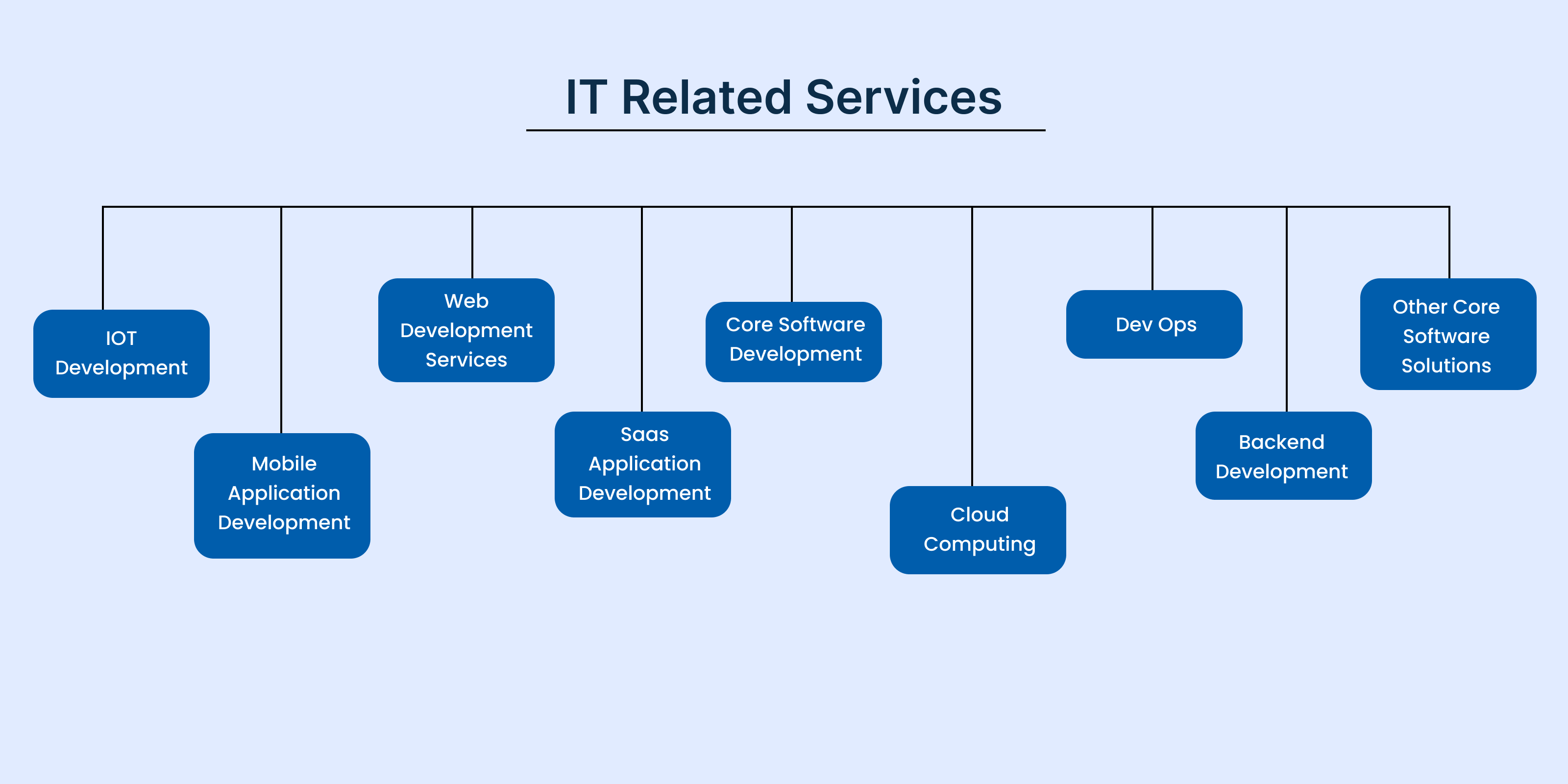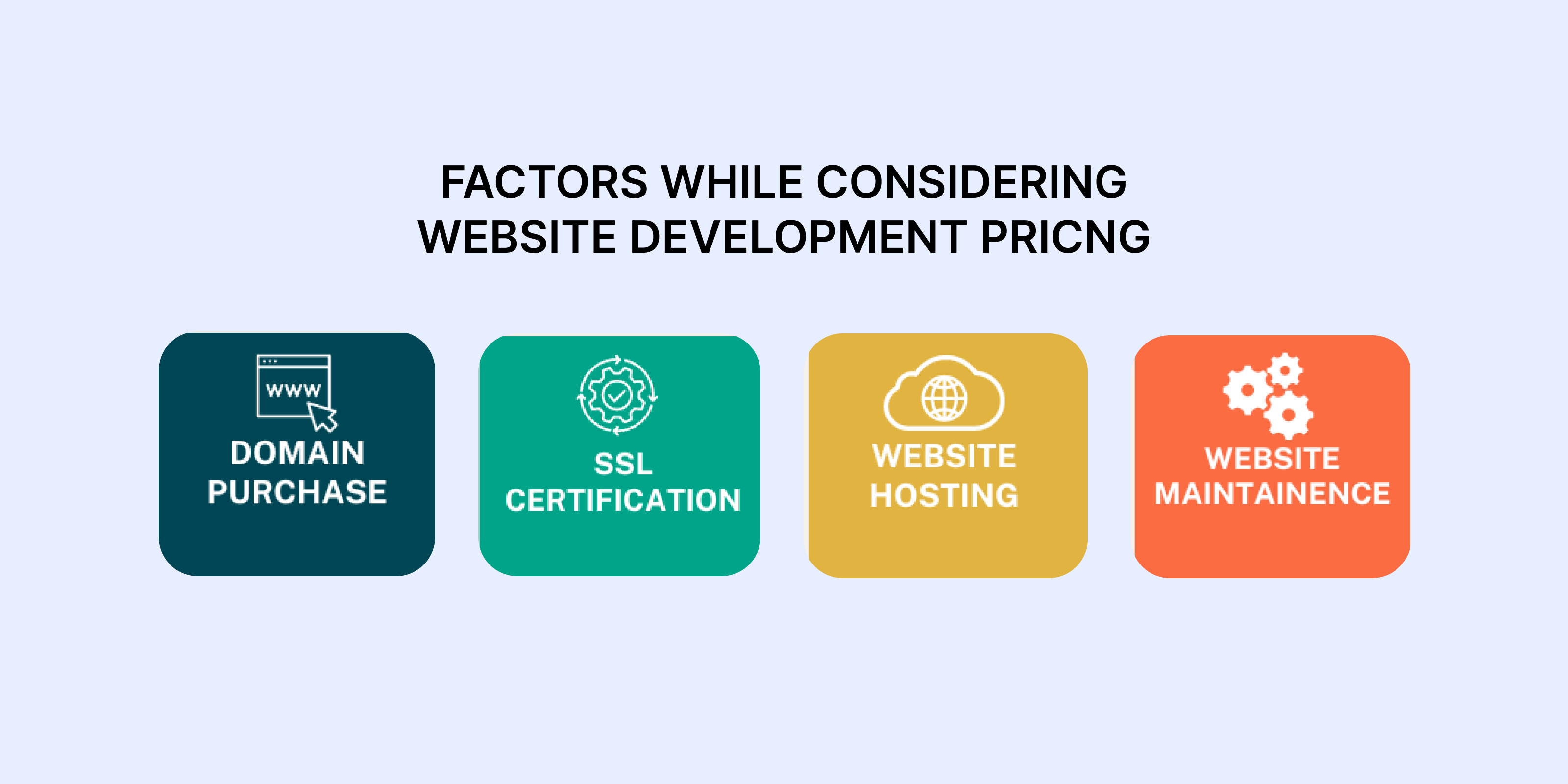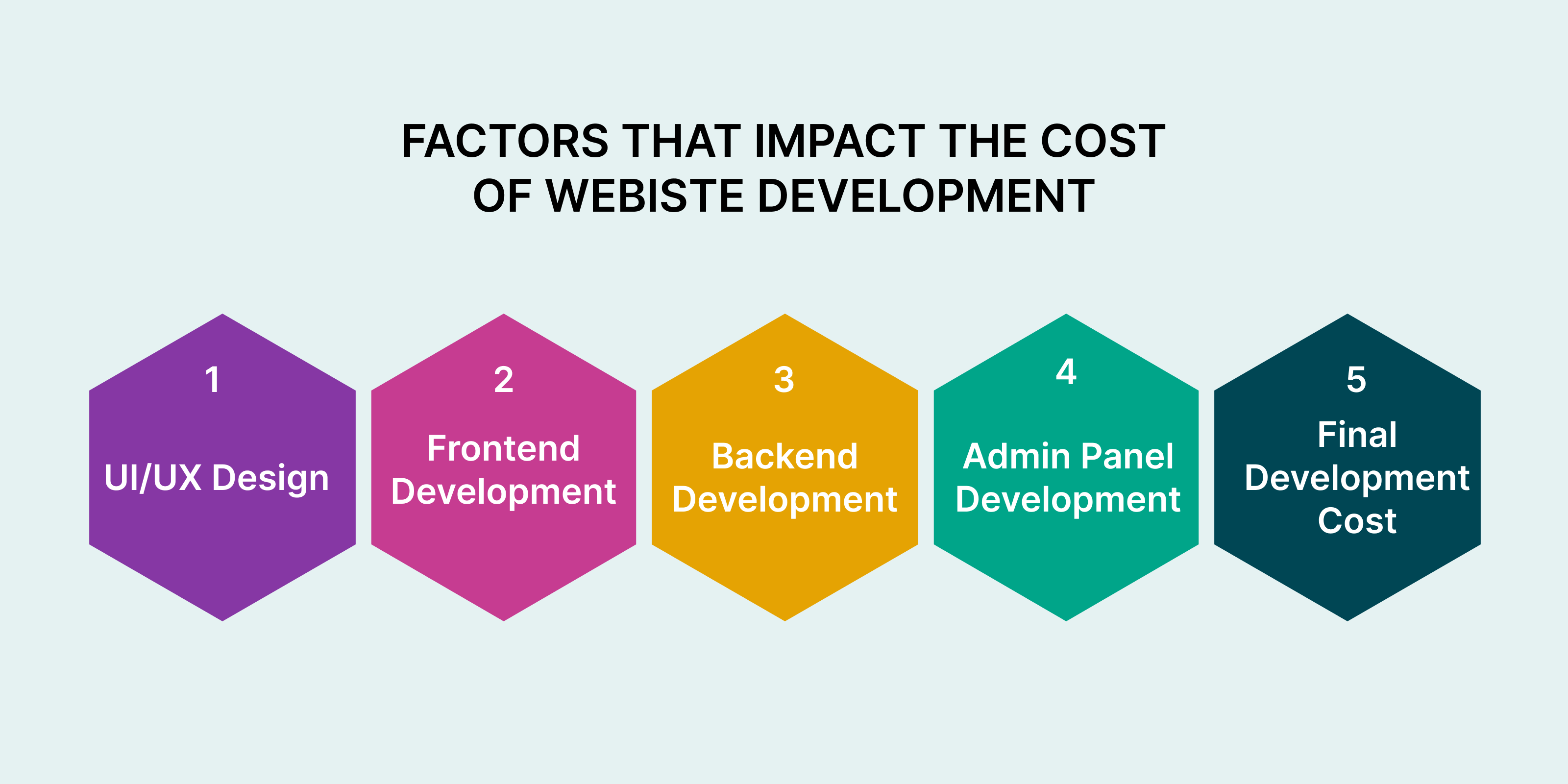Guide to Outsourcing for Small Businesses
In today's digitally integrated business environment, it's quite rare to come across a business that doesn't rely on IT systems or technologies to some extent to automate and communicate business workflows with each other and even to facilitate and nurture business relationships.
While this may be particularly true, for large, established and enterprise businesses; small and medium sized businesses these days are also heavily reliant on a whole range of technologies that many aren't even aware of!
This is not just true for developed countries either.
Even in India, where Code-B is based, an upstart Accounting firm will rely on a whole host of technology-led systems and processes for streamlining the tasks effectively.
This is more over the case for digital-first companies, SaaS companies, companies managing huge banks of data and industries that rely on cutting edge IoT technologies.
Science behind outsourcing

It's common knowledge that large companies generally outsource a bulk of their information technology needs to companies domestically, but more often than not, these requirements are outsourced from an offshoring center from another country with either specialized talent or a far lower service cost.
Back in the day, there were several fixed costs associated with IT services outsourcing that made it unfeasible for small businesses and reserved this practices only for companies that could benefit significantly from the scale of this practice.
In recent times, however, things have been changing rapidly; outsourced solutions like call centres, BPOs, customer excellence even digital marketing services are being outsourced heavily.
The industry that has perhaps experienced this phenomenon the most is the software development industry, since the fixed costs associated with IT or outsourced IT services was minimal to begin with.
Which IT Services are Generally Outsourced
Cost is definitely one of the reasons why companies prefer outsourcing from outer countries mainly because of the major difference in currency exchange rates.
For instance , many medium and small enterprises from United States hire mobile and web developers from India.
Two reasons:
- Cheaper exchange rate
- Diverse talent pool and committed developers with a stem background
Services like the ones listed below are the IT and related services that small businesses generally look to outsource

IoT Development
- IOT development requires a deep understanding of both hardware and software integration, which small businesses might not possess in-house.
- Contact experts who can ensure reliable and secure IoT solutions.
- Building an in-house IOT team is expensive, better to outsource your need.
Mobile App Development
- Time consuming task especially for in house teams.
- Accelerate the development process by tapping into experienced developers who can efficiently handle the project from concept to deployment.
Web App Development
- Same logic like the previously explained mobile app development outsourcing.
- You can always scale up or down on your team catering to the necessities of the project .
- This way you can focus on company's core competencies and business activities, leaving the technical aspects to specialized professionals.
SaaS App Development
- Developing a SaaS application requires significant investment in technology and talent.
- Outsourcing spreads these costs across multiple clients for the service provider, resulting in more affordable development .
Basic Cloud Computing
- Setting up and maintaining cloud infrastructure in-house can be costly and complex.
- Outsourcing provides access to advanced, scalable cloud services without the need for significant capital expenditure.
- Reputable cloud service providers adhere to strict security and compliance standards.
- Outsourcing ensures that your data is secure and compliant with industry regulations without the need for in-house expertise.
DevOps
- DevOps requires a combination of development and operations skills, which can be challenging for small businesses to find and maintain.
- Outsource devops engineers to benefit from streamlined processes and continuous integration/continuous deployment (CI/CD) pipelines managed by experts.
- Outsourcing provides access to a team of professionals who can optimize resources and manage infrastructure effectively.
How to Go About It? and What are the Benefits?

So there are a few countries that are ideal countries for considering outsourcing IT Management since they perfectly balance a few key aspects, mainly, the cost, the availability of a talent pool and the quality of that talent pool.
Keeping this in mind, the countries below are strong contenders, each for their own distinct reasons and, more importantly, the key aspect is being able to touch base with the right agency for your IT requirement.
Ukraine
- With well over 200,000 IT specialists working in the country and a bold prediction that Ukraine is well on it's way to double the number of IT companies operating in the country by 2025.
- Admittedly, the quality of coding work and the cream of the tech talent in Ukraine is one of the best, especially for intricate projects.
- The country has the largest number of C++ programmers in the world and the country is well known for building some of the newest, more trending softwares.
- GitLab, Grammarly, and people.ai are some common Ukrainian homegrown SaaS companies and the government focus on cultivating domestic software talent is encouraging.
- They're affordable too, assuming the same scope and quality of the work, you're looking at a cost saving of >30% when you choose to work with a trustworthy Ukranian software partner.
There are a few downsides too, however.
While there sure is a ton of cost savings with little of the risk, many businesses may not find it worthwhile to offshore their requirements at all.
Also, almost every other country is more cost effective assuming same quality and scope of work. Less than 19% of Ukrainian population speaks English so communication can be a barrier, but that entirely depends on the partner you find.
India
- Undoubtedly, the next destination you may want to consider is India. Almost 70% of my own core software development team at Code-B is based out of India.
- The government focus on STEM courses throughout the course of the '80s and '90s really helped cement India's position as the world's IT hub since the 2000s.
- Technology hubs in Bangalore, Mumbai, Delhi, Pune and Chennai are massive and are home to agencies and firms that work with huge multi-billion dollar companies.
- In fact, the industry has matured and IT service companies addressing a whole range of small to medium business requirements also exist.
- At Code-B, almost 60% of our clientele comprise small to medium sized businesses, for these same companies, I can confidently say that Code-B has provided a superior solution at 1/3rd the cost
This is one of the main advantages of working with an India-based partner. Also, India has a huge English speaking population, the country has an IT hub since a while to the industry and government initiatives to allow it to thrive make it an ideal destination you should consider.
United States
- The United States is a global leader in technology innovation, with renowned technology hubs such as Silicon Valley in California, Route 128 in Massachusetts, and the Research Triangle in North Carolina.
- These regions are home to a concentration of top-tier universities, research institutions, and technology companies, fostering a culture of innovation and entrepreneurship.
- Leading universities and educational institutions in the US produce a steady stream of graduates in computer science, engineering, and related fields, providing a rich talent pool for the IT industry.
- Additionally, the country attracts top talent from around the world through immigration and visa programs.
- It is home to many of the world's largest technology companies, including Google, Apple, Microsoft, Amazon, and Facebook.
These companies drive innovation and set industry standards in areas such as cloud computing, artificial intelligence, cybersecurity, and e-commerce. Their presence in the market attracts talent, fosters collaboration, and spurs competition, further strengthening the U.S. position in the global IT services industry.
When Should you Outsource IT Services?
As a medium (or small) business owner, you should be asking yourself a few questions before deciding to offload software development workflows to another team.
Firstly, map out the requirements and the exact scope of work.
For instance, if you're looking to build, say, a Taxi Booking Application , applications like these also require some ongoing maintenance efforts.
Technology partners globally are fairly upfront about the maintenance costs of any given application or software and this is generally to the tune of 5% of the development cost, paid annually.
Of course, this will vary from project to project and a slew of other factors.
Secondly, try to ascertain the cost of the hiring a dedicated resource for this requirement locally, this will not include just the salary but other fixed costs pertaining to the the employment, office facilities, shared resources, employer obligations etc.
Given the prohibitively high cost and also the fact that getting a hold of reliable, and scalable technical talent is not straightforward., especially in developed countries, many companies opt to offshore their IT requirements.
There are a few distinct advantages for small businesses looking to address their requirements in this manner.
Flexibility
One of the less spoken about advantages of working with an offshore, outsourced IT Service technology company or a partner is the flexibility to address programming and software requirements.
What does this mean?
- You see businesses that contract the work of an offshore agency initially do so for a fixed-scope of tasks that will ideally be delivered in a short span of time.
- This is considered to be the "test the waters" phase of working with the partner.
- After amounting a great deal of experience and a sense of confidence with the partner, smaller businesses are fairly comfortable to outsource other branches of technical work since the cost-saving aspect, quality of work and the timely delivery of projects by the partner become an irresistible offer.
- I've witnessed this first hand while running Code-B.
- Most of our large clients today contracted us for relatively minor projects around web application development, front end implementations or building basic mobile apps.
- After a few months of measurable output and cost-savings and also after garnering quite a bit of comfort, the projects scaled to include a wider scope of IT projects, including data warehousing, cloud computing, end-to-end management of IT systems, business analytics and also complete digital transformation projects.
Core Competencies
Unless the portion of the work being outsourced is central to the small business in question, it's generally a great idea to outsource instead of dealing with the details of a completely different function entirely.
For instance, a SaaS company that's core service is the data that it offers, should re-think whether they want to outsource data warehousing, analytics, data scraping and data management.
However, the same company can comfortably outsource their web development, application development, UI/UX or AI/ML requirements or projects with a trustworthy offshore partner.
Latest Technologies, Frameworks & Approaches
Software and information technology industries are easily one of the most dynamic, fast paced and ever-changing industries with trends changing every year or two.
Building a full-time but small in-house team puts you at a risk of not changing with the times from day 1 onwards, unless you're closely working with the internal team and actively supporting and encouraging modernization and training efforts.
This simply is not the case when you outsource these requirements and work with a dedicated technology partner since they deal with a plethora of clientele across disciplines on a daily basis.
This means their business and livelihood depends on being one of the cutting-edge technology partners. Moreover, the staff at these companies comprise of a range of tech professionals across seniorities and disciplines.
This fosters a culture of continuous learning, growth and cross-discipline expertise that effectively ensures that the team is at the cutting edge of technology all the time, and the same will reflect in the quality of your project
Faster time to Market
The ability to grab an opportunity and to dig in and get as many as prospects when the time is right is an important aspect.
Once you've established your presence in the market , company representatives can entirely focus on communicating with potential clients .
While all your hands are on deck you can now opt for outsourcing your core software development services and save a good amount of time and energy to focus on a the portfolio building aspect. Overall, by combining proactive market presence, strategic client communication, and outsourcing core software development services, companies can optimize their operations, accelerate time to market, and achieve sustainable growth in today's dynamic business landscape.
Difficulties while Outsourcing
In my years if experience as a developer , Often the clients are met with multiple barriers either during recruitment or later while working together .
- While exceptional developers can occasionally be found, the majority may fall into the average to below average category, especially if the business opts for cheaper outsourcing providers.
- To address this issue effectively, Companies can utilize a hybrid approach to be quite successful.
- In this hybrid model, they maintain an onshore team while supplementing it with offshore teams.
- The onshore team, whom they hire directly, is entrusted with architecting and handling business-critical components.
- Meanwhile, the offshore teams take on more routine tasks while also undergoing upskilling initiatives.
- This approach serves several purposes. Firstly, by retaining key responsibilities in house, client side ensures a higher level of control and oversight over critical aspects of our projects.
- Secondly, it allows them to leverage the cost-effectiveness of offshore teams for tasks that don't require the same level of expertise or direct involvement.
- Furthermore, having an onshore team facilitates clearer communication, smoother collaboration, and faster decision-making processes.
- It also helps in bridging any cultural or language barriers that may arise when working with offshore teams.
- Additionally, by upskilling the offshore teams over time, we not only improve the quality of their output but also cultivate a more sustainable and mutually beneficial relationship with our outsourcing partners.
- This investment in their development pays dividends in the long run, as we gradually build a more capable and reliable extended team.
In conclusion, while outsourcing certainly has its challenges, a hybrid approach can mitigate many of these risks by combining the best of both worlds , the expertise and stability of an onshore team with the cost efficiency and scalability of offshore resources.
It's a strategy that allows businesses to maximize their outsourcing benefits while minimizing potential drawbacks.
Another issue often faced is the availability of specific developers .
For instance , Native mobile developers, particularly those proficient in native Kotlin for Android and Swift for iOS, are in high demand but are often reluctant to work as consultants, preferring in-house roles.
This scarcity of native mobile developers can pose a challenge for businesses seeking to develop or maintain mobile applications.
In terms of geographical availability, certain regions or countries may have a higher concentration of developers with specific skill sets.
For example, countries like India, Ukraine, and Poland are known for their strong talent pool in mainstream technologies like Java, C#, and Python.
According to one of the sources and the Popularity of Programming Languages Index, Indian developers offer their expertise in the following languages
- Python: 31.35%
- JAVA: 22.16%
- JavaScript: 9.87%
- C/C++: 8.12%
- C#: 6.67%
On the other hand, countries like the United States and Western European nations may have a higher number of specialized developers in niche technologies due to their advanced technology ecosystems and educational institutions.
When considering offshore outsourcing, it's essential for businesses to prioritize technologies with broader skill bases to ensure availability and scalability.
Technologies like Java, C#, Go, Python, Node.js, React, Angular, Vue, Flutter, Kotlin, and Swift are widely adopted and supported by a larger developer community, making it easier to find skilled professionals globally.
However, it's crucial to strike a balance between leveraging mainstream technologies and meeting specific project requirements.
While sticking to major technologies can help keep costs in check, you may feel the need to invest additional time and resources in sourcing and training developers for niche technologies when required.
In summary, while the availability of software developers varies depending on the technology and region, you can maximize the chances of success in offshore outsourcing by focusing on mainstream technologies with broader skill bases while also considering the specific needs of their projects.
STRATEGIC PLANNING
Thought of maintaining a budget while outsourcing is what majority of small business owners are afraid of.
However, with a thorough plan you can easily create and implement a pocket friendly strategy considering a few KPI's
Define Your Budget
Before you start looking for software development services, it's important to define your budget.
Consider how much you're willing to spend on the project and what you expect to get in return.
This will help you set realistic expectations and avoid overspending.
Shop Around
Don't settle for the first software development company you come across.
Shop around and compare prices, services, and reviews from different providers.
Look for companies that offer transparent pricing and a clear breakdown of costs.
Consider Offshore Development
Offshore software development can be more cost effective than hiring a local development team.
Look for countries with lower labor costs, such as India, Ukraine, or Poland.
However, be aware of potential language and time zone barriers.
Choose the Right Engagement Model
There are different engagement models for software development, such as fixed-price, time and material, and dedicated team.
Choose the one that best fits your budget and project requirements.
Prioritize Features
Not all features are equally important.
Prioritize the features that are essential for your project and focus on developing them first.
This will help you save money and time by avoiding unnecessary features.
Optimize Development Process
Streamline the development process to reduce costs.
This includes using agile methodologies, minimizing rework, and promoting collaboration between developers and stakeholders.
Negotiate the Price
Don't be afraid to negotiate the price with the software development company.
Ask for discounts, payment plans, or other incentives to help you save money.
Review the Contract
Before signing the contract, review it carefully to ensure that all costs and terms are clearly defined.
Look for any hidden fees or unexpected costs that could impact your budget.
Monitor Progress
Keep track of the progress of the project to ensure that it stays within budget.
Regularly review the project plan, budget, and timeline to identify any potential issues early on.
Be Flexible
Be prepared to make adjustments to your budget as needed. Unexpected issues or changes in project scope can impact your budget, so it's important to be flexible and adaptable
Essential Outsourcing for Small Business
As an infant business owner, you might think that outsourcing IT services is beyond your budget. However, there are several essential IT services that you can consider outsourcing, even on a limited budget.
Here are some examples:
Website Development and Maintenance
- A professional website is essential for any business, regardless of its size.
- Outsourcing website development and maintenance can ensure that your website is well designed, user friendly, and regularly updated with fresh content.
- This can help you attract more customers and improve your online presence.
- Outsourcing to India, Ukraine, or the Philippines can be cost effective.
- Rates can start from as low as $10 per hour for basic website development and maintenance.
What factors Impact the Cost of Website Development ?

- UI/UX Design is the face of the website and is one of the foremost important factor in terms of attracting & retaining users.
- The average cost of website design varies upon several factors and can range from $750 to $4000.
Frontend Development is the creative and technical process of bringing the visual elements of a website to life.
- It encompasses the design and functionality of the site's interface, including elements like login pages, registration forms, and interactive buttons.
- The cost for frontend development typically ranges from $1000 to $12,500, depending on the complexity and adaptiveness of the site.
Backend Development
- Backend Development is the engine of a website, responsible for processing and storing data, and managing interactions between the frontend and the server.
- This aspect of development can cost between $4000 and $12,500, depending on factors like the integration of third-party services and the complexity of queries.
Admin Panel Development
- The cost for developing an admin panel can vary from $3000 to $9000, depending on the framework used and the level of customization required.
- PHP is often the preferred framework for building admin panels due to its flexibility and cost-effectiveness.
Overall Development Cost
- The total cost of developing a website can range from $1000 to $10,000, depending on factors like complexity, size, and desired features.
- Constructor based sites are the most affordable, while complex sites with advanced features can cost up to $150,000.
- Hiring a dedicated node.js development company in India or a PHP developer in India can be a cost effective solution for high-quality development services.
Other additional factors

Hoping , that this overview for every aspect will help startups to understand how they can go about , regarding outsourcing an ideal service the best possible deal by having basic understating .
Domain Purchase
- A domain name is an essential component of any website, providing a unique address on the Internet.
- The cost of purchasing a domain name typically ranges from $12 to $60 per year, depending on the popularity of the domain name, registrar, and extension.
- It's advisable to purchase a domain name from an independent registrar to avoid additional charges for transferring it to another provider in the future.
SSL Certification
- An SSL certificate is crucial for website security, encrypting data and ensuring authenticity.
- The cost of an SSL certificate ranges from $10 to $300 per year. It's important to note that users are more likely to trust and use secure websites.
Website Hosting
- Website hosting is the service that makes your website accessible on the Internet.
- Hosting costs vary based on the hosting type, with VPS and shared hosting being more cost-effective options compared to cloud hosting and dedicated hosting.
- The cost of website hosting typically ranges from $100 to $500 per year.
Website Maintenance
- Maintaining a website is essential for keeping users engaged and ensuring its functionality.
- The cost of website maintenance depends on the size and complexity of the website, with small websites costing around $500 per year and large websites potentially exceeding $12,000 per year in maintenance costs.
Cloud Services
- Cloud services can help you store and access your data securely from anywhere.
- Outsourcing cloud services can ensure that your data is protected and backed up regularly, reducing the risk of data loss or theft.
- Cloud services like Amazon Web Services (AWS), Microsoft Azure, and Google Cloud Platform offer 'pay as you go pricing', which can be more affordable for small businesses.
- Rates can vary depending on the services used and the amount of data stored
How do you price a Cloud Computing Service?
Pricing provided by your service provider can be entirely customized , The person will charge you on the basis of ,
Service Type
- Cloud computing services can be categorized into Infrastructure as a Service (IaaS), Platform as a Service (PaaS), and Software as a Service (SaaS). The type of service you choose will affect the pricing.
Resource Usage
- The amount of resources you use, such as storage, computing power, and network bandwidth, will impact the cost. Cloud service providers typically charge based on usage, so the more you use, the more you'll pay.
Subscription vs. Pay as you go
- Some cloud services offer subscription plans, where you pay a fixed monthly or yearly fee for a certain amount of resources. Others offer pay-as-you-go pricing, where you only pay for the resources you use. The pricing model you choose can affect your overall cost.
Geographic Location
- The location of the data center where your cloud service is hosted can also impact the cost. Some providers charge more for services hosted in certain regions.
Additional Services
- Many cloud service providers offer additional services, such as security, monitoring, and support. These services may have their own pricing structures that can add to the overall cost.
Contract Length
- Some cloud service providers offer discounts for longer-term contracts. If you're willing to commit to a longer contract, you may be able to get a lower price.
Provider Pricing
- Different cloud service providers have different pricing structures, so it's important to compare prices from multiple providers to find the best deal.
Cybersecurity
- Cybersecurity is a growing concern for businesses of all sizes. Outsourcing cybersecurity services can help you protect your business from cyber threats, such as malware, phishing, and ransomware attacks.
- This can help you avoid costly data breaches and protect your customers' sensitive information.
- Outsourcing cybersecurity services to countries like Romania, Poland, or Bulgaria can be cost effective.
- Rates can start from as low as $30 per hour for basic cybersecurity services.
- These countries have a strong IT security industry and skilled workforce.
Help Desk and Technical Support
- Outsourcing IT support services can ensure that your employees have access to timely and reliable technical assistance when they need it.
- This can help you avoid productivity losses and ensure that your business operations run smoothly.
- Outsourcing to the Philippines, Vietnam, or Egypt can be cost-effective.
- Rates can start from as low as $10 per hour for basic help desk and technical support services.
- These countries have a large pool of English-speaking professionals and are known for their customer service.
Backup and Disaster Recovery
- Outsourcing backup and disaster recovery services can ensure that your data is backed up regularly and securely.
- This can help you recover quickly in the event of a data loss or disaster, minimizing downtime and ensuring business continuity.
- Many cloud service providers offer backup and disaster recovery services as part of their cloud offerings.
- Rates can vary depending on the provider and the amount of data being backed up.
Software Development
- If you need custom software solutions for your business, outsourcing software development services can be a cost-effective option.
- This can help you get high-quality software solutions tailored to your specific needs, without the need to hire a full-time development team.
- Outsourcing to India, Ukraine, or Pakistan can be cost-effective.
- Rates can start from as low as $15 per hour for basic software development services
Managed IT Services
- Managed IT services provide proactive monitoring, maintenance, and support for your IT systems.
- Outsourcing managed IT services can help you avoid the high costs associated with hiring and training in-house IT staff, while ensuring that your IT systems are running smoothly and securely.
- Outsourcing to countries like Romania, Poland, or Bulgaria can be cost-effective. Rates can start from as low as $25 per hour for basic managed IT services
Digital Marketing
- Digital marketing services, such as search engine optimization (SEO), social media marketing, and email marketing, can help you attract more customers and grow your business online.
- Outsourcing digital marketing services can help you reach your target audience more effectively and improve your online visibility.
Data Analytics and Reporting
- Data analytics and reporting services can help you analyze your business data and make informed decisions.
- Outsourcing data analytics and reporting services can help you gain valuable insights into your business performance and identify areas for improvement.
- Outsourcing to India, Ukraine, or Pakistan can be cost-effective. Rates can start from as low as $10 per hour for basic data analytics and reporting services.
.svg)
When Should you Reconsider Outsourcing your IT ?
While the benefits are as good as they are, I still recommend several inbound enquiries to either reconsider offshoring some types of technical work and in several other cases we outright refuse taking up some projects.
If you consider using an offshore work, make sure that you have a competent team of architects and technical leadership on your project site with the proper authority laid down within the contract.
Managers without technical knowledge will be fed without they realizing it and you will be dependent on them.
In conclusion, as a coding agency owner, I've found that outsourcing IT services can significantly benefit small businesses. By leveraging our experience and data, we've seen increased efficiency, cost savings, and access to specialized skills. However, it's essential to carefully vet and communicate with outsourcing partners to ensure a successful collaboration.












.png)


